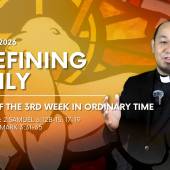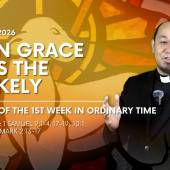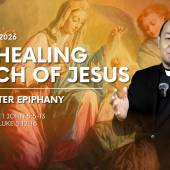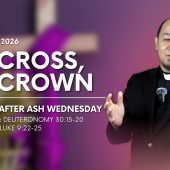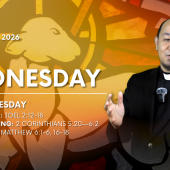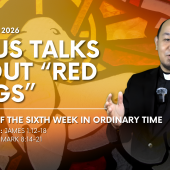The One who Loves God Celebrates Life!
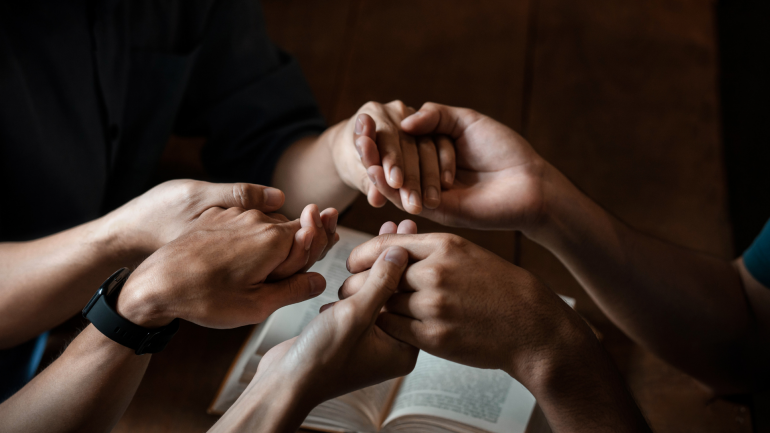
September 25, 2025 Thursday of the Twenty-fifth Week in Ordinary Time
Daily Readings: Haggai 1:1-8; Luke 9:7-9
Haggai is one of the twelve Minor Prophets, and his name beautifully means “one who celebrates.” He lived during the period of the rebuilding of the Second Temple in Jerusalem, in the second year of King Darius’ reign. It was Haggai who, in 520 BCE, courageously commanded the people to resume the reconstruction of the Temple. Yet many had grown complacent, focusing on building comfortable, paneled homes for themselves while the house of God remained in ruins.
Through the prophet, the Lord confronts His people with a piercing question: “Consider how you have fared.” Their self-centeredness had left them empty. Their fields yielded little, their thirst remained unquenched, their clothing could not keep them warm, and their earnings seemed to vanish. Haggai makes them realize that life without God is fruitless. He urges them to turn from self-indulgence to God’s glory, to climb the hills, gather wood, and rebuild the Temple so that God’s presence may once again dwell among His people.
In the Gospel, we meet another striking figure, Herod Antipas, the tetrarch. Unlike Haggai, Herod is a man enslaved by guilt and fear. His conscience is tormented by the crime he committed: the beheading of John the Baptist, who had fearlessly denounced Herod’s unlawful and adulterous union with his brother’s wife. Reports about Jesus only deepen Herod’s unease. Some believed Jesus was John the Baptist risen from the dead; others thought He was Elijah or one of the ancient prophets. Herod, restless and insecure, is driven by both fear and curiosity. He longs to see Jesus, not with faith and love, but with suspicion, seeking to ensure there is no threat to his power.
Haggai calls us to put God first, while Herod warns us of what happens when pride, guilt, and fear rule the heart. One path leads to renewal and life with God; the other, to spiritual ruin. The choice remains ours.
Call to Action: The life of Herod Antipas teaches us what truly happens to a person with conflicting beliefs and a troubled conscience. May our own examination of conscience purify us!
Radio Veritas Asia (RVA), a media platform of the Catholic Church, aims to share Christ. RVA started in 1969 as a continental Catholic radio station to serve Asian countries in their respective local language, thus earning the tag “the Voice of Asian Christianity.” Responding to the emerging context, RVA embraced media platforms to connect with the global Asian audience via its 21 language websites and various social media platforms.









